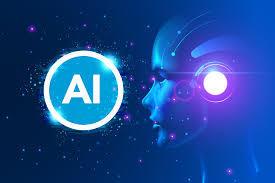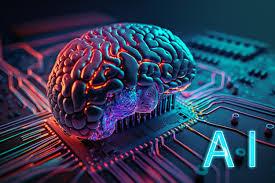🔍 The Rise of Artificial Intelligence: A Deep Dive into AI and Its Astonishing Advancements

Introduction: What Is Artificial Intelligence?
Artificial Intelligence (AI) refers to the simulation of human intelligence in machines that are programmed to think, learn, and adapt. AI enables machines to perform tasks such as visual perception, speech recognition, decision-making, and language translation—capabilities traditionally associated with human cognition.
In 2025, AI is no longer science fiction. It powers our phones, recommends our favorite movies, drives our cars, and even diagnoses diseases with greater accuracy than many doctors. But how did we get here? And what does the future hold?
🧠 A Brief History of AI: From Theory to Revolution
The concept of AI isn't new. It traces back to the 1950s when pioneers like Alan Turing and John McCarthy first asked whether machines could think. Since then, AI has gone through several waves:
-
1950s–1970s: Early research in symbolic AI, problem-solving, and logic-based reasoning.
-
1980s: Introduction of expert systems and rule-based AI.
-
1990s–2000s: Rise of machine learning and data-driven models.
-
2010s–present: Explosion of deep learning, natural language processing (NLP), and AI-driven automation.
🚀 Major Advancements in AI
1. Machine Learning (ML) & Deep Learning (DL)
AI’s biggest leap came with the evolution of machine learning, where machines learn from data without being explicitly programmed.
-
Deep learning, a subset of ML, mimics the human brain using neural networks, enabling powerful breakthroughs in image and voice recognition.
Examples:
-
Netflix's recommendation engine
-
Amazon Alexa and Google Assistant
-
Google Translate's neural machine translation
2. Natural Language Processing (NLP)
NLP allows machines to understand and generate human language.
Modern NLP models like OpenAI’s GPT-4, Anthropic’s Claude, and Google’s Gemini are capable of writing essays, answering questions, summarizing books, translating languages, and even coding software.
3. Computer Vision
AI can now see and interpret images and videos:
-
Facial recognition
-
Medical imaging (MRI, CT scans)
-
Autonomous vehicles
Computer vision is revolutionizing everything from security to agriculture, identifying crop diseases and even monitoring deforestation from satellites.
4. Generative AI
Tools like ChatGPT, DALL·E, Sora, and Midjourney generate content—from realistic text and videos to artistic images and 3D models.
Generative AI is transforming content creation, marketing, design, and even scientific research.
5. Robotics & Automation
Combining AI with robotics has enabled:
-
Smart manufacturing (Industry 4.0)
-
Warehouse automation (e.g., Amazon robots)
-
Humanoid robots like Tesla Bot or Boston Dynamics' Atlas
-
Autonomous drones for delivery and surveillance
6. AI in Healthcare
AI is now used for:
-
Diagnosing diseases with high accuracy (like cancer or diabetic retinopathy)
-
Predicting outbreaks
-
Drug discovery
-
Robotic surgeries
-
Personalized medicine
AI is expected to save millions of lives over the next decade.
💼 AI's Impact on Business and Economy
1. Global Market Size
According to Grand View Research, the global AI market is expected to reach $1.8 trillion by 2030. AI is already reshaping how businesses operate.
2. Job Creation and Automation
AI will automate repetitive jobs (like data entry, basic customer support), but it will also create millions of new roles in AI engineering, data science, ethics, policy, and robotics.
Top AI-related careers:
-
AI Research Scientist
-
Data Engineer
-
Machine Learning Engineer
-
Prompt Engineer
-
AI Ethics Officer
3. Productivity Gains
Companies using AI are seeing 40–70% improvements in productivity, faster decision-making, reduced operational costs, and increased customer satisfaction.
🧩 AI in Everyday Life
From morning to night, AI is silently working in the background:
-
Wakes you up with a smart alarm
-
Suggests routes using Google Maps
-
Filters spam from your email
-
Recommends videos on YouTube
-
Analyzes health metrics on your smartwatch
-
Improves smartphone camera quality
-
Optimizes your social media feed
🛡️ Challenges & Ethical Concerns in AI
With power comes responsibility. AI also raises serious concerns:
1. Bias & Discrimination
If AI is trained on biased data, it can make unfair decisions, especially in hiring, policing, or lending.
2. Privacy Invasion
Facial recognition, surveillance, and data collection raise privacy alarms. Are we sacrificing too much for convenience?
3. Job Displacement
Automation may threaten jobs in sectors like transport, customer service, and manufacturing.
4. Misinformation
AI-generated deepfakes and fake news can be used maliciously.
5. AI Safety & Control
As AI becomes smarter, controlling it becomes harder. Organizations like OpenAI, DeepMind, and Anthropic are working on AI alignment to ensure AI behaves ethically and safely.
🌍 AI and the Future of Humanity
AI isn’t just a tool—it’s a transformation. Here’s what the future might look like:
🔮 Predictable Trends:
-
AI-powered education with personalized tutors
-
AI-generated music, films, books
-
Full automation of supply chains and logistics
-
Digital humans acting as customer service agents
-
AI-assisted governance and legal systems
🌱 AI for Good:
-
Fighting climate change with data and prediction models
-
Preventing wildfires with drones
-
Enhancing disaster response
-
Helping farmers optimize crop yield
-
Making healthcare accessible in rural areas
📊 Real-World AI Adoption Statistics (2025)
-
80% of Fortune 500 companies use AI in operations
-
65% of marketers use generative AI for content
-
50% of doctors use AI tools for diagnostics
-
1 in 4 people interact with AI daily without realizing
🧭 Final Thoughts: Embracing the AI Era
Artificial Intelligence is not the future. It is the present.
AI is helping us understand the world, create beautiful things, solve big problems, and dream bigger than ever before. Like electricity or the internet, it will be a defining technology of the 21st century.
But with great power comes great responsibility. We must use AI wisely—ensuring it benefits all of humanity, not just a privileged few.
So whether you're a student, business owner, developer, or policymaker, now is the time to embrace AI, learn its language, understand its impact, and be part of shaping its future.






